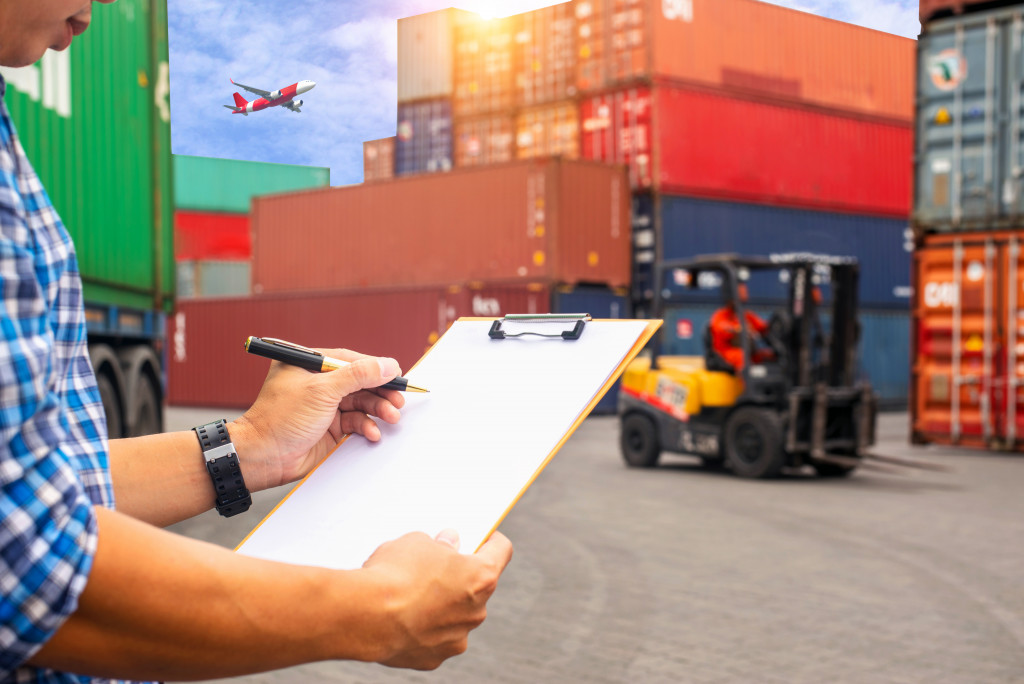Technology has been a blessing to the logistics industry. With the help of technology, businesses in the logistics industry have become more efficient and productive. There are many different types of technology that you can use in the logistics industry, and this article will discuss some of them.
1. Automated shipping software
One technology that you can use in the logistics industry is automated shipping software. This software can automate many tasks, including tracking shipments, calculating shipping costs, and generating shipping labels. It can also book transportation and create documents such as bills of lading, saving you both time and money.
In addition, automated shipping software can provide valuable insights into your shipping operation, allowing you to identify areas where you can improve efficiency. When choosing a computerized shipping software, select a solution that integrates with your existing systems and can scale as your business grows.
2. Industrial scanners and sensors
Industrial sensors and scanners can track inventory levels and the movement of goods throughout your facility. You can use this information to optimize your warehouse layout and improve your picking and packing operations. Industrial scanners can also be used to track the condition of your products, allowing you to identify damaged or defective items quickly.
Instead of investing in a single type of scanner, consider investing in a system that you can use for multiple purposes. Doing this will allow you to use the system for different tasks as your needs change. You can work with the experts in Sensors Incorporated to find suitable scanners for your business.
3. GPS tracking
You can use GPS tracking to track the location of your vehicles and shipments in real-time. It allows you to see exactly where your shipments are, making it easy to locate lost or stolen items. GPS tracking can also be used to monitor the performance of your drivers and ensure that they are taking the most efficient routes.
Some GPS tracking systems also include features that allow you to monitor the condition of your vehicles, such as tire pressure and engine temperature. With this information, you can take steps to prevent breakdowns and improve the safety of your drivers.

4. Blockchain technology
Blockchain is a distributed database that allows multiple parties to share information without a central authority. You can use this technology to create a secure, tamper-proof record of transactions.
You can use blockchain technology in the logistics industry to track the movement of goods and verify the authenticity of documents. You can also use it to create smart contracts, which can automate the execution of agreements between parties. Different types of businesses in the logistics industry can benefit from using blockchain technology, including transportation companies, customs brokers, and freight forwarders.
5. Cloud-based systems
Cloud-based systems are becoming increasingly popular in the logistics industry. These systems offer many benefits, including the ability to scale quickly, reduced IT costs, and increased flexibility.
You can use cloud-based systems for various tasks in the logistics industry, including transportation management, warehousing, and order fulfillment. When choosing a cloud-based system, select a solution that meets the specific needs of your business.
6. Big data analytics
Big data analytics is the process of analyzing large sets of data to identify trends and patterns. Logistics companies benefit from big data analytics by using it to improve their operations. For example, you can use big data analytics to identify inefficiencies in the supply chain, optimize routes, and improve customer service.
You can also use big data analytics to predict demand, which can help logistics companies better plan their operations. Whenever possible, choose a big data analytics solution specifically designed for the logistics industry. Not all big data analytics solutions fit every logistics business, and some may not offer the features you need.
7. Warehouse management systems
A warehouse management system (WMS) ;is a software solution that helps logistics companies manage their warehouses. You can use a WMS to track inventory levels, automate tasks, and improve the accuracy of picking and packing operations. Compared to traditional paper-based systems, a WMS can help you improve your warehouse operations and save time and money.
Sometimes, a WMS is bundled with other software solutions, such as a transportation management system (TMS) or an enterprise resource planning (ERP) system. You can take advantage of this by purchasing a software suite that includes all the solutions you need to run your business.
8. Radio frequency identification (RFID)
Finally, radio frequency identification (RFID) is a technology that can track the movement of goods. RFID tags are attached to products, especially high-value items, such as electronics, pharmaceuticals, and jewelry, and can be read by RFID scanners. They can be used with other systems, such as barcodes and GPS, to create a complete picture of your supply chain.
Technology has had a profound impact on the logistics industry. It has allowed businesses to become more efficient and reduce costs. With the right technology solutions in place, you can improve your operations, save time and money, and better serve your customers.



